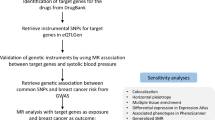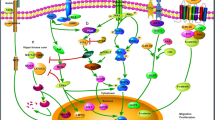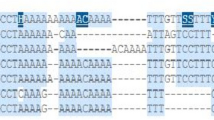Abstract
Many studies have reported the role of transforming growth factor-β1 (TGF-β1) −509C/T or +869T/C polymorphism with hepatocellular carcinoma (HCC) risk. However, these studies have yielded conflicting results. Hence, we performed this meta-analysis to investigate the association between TGF-β1 −509C/T or +869T/C polymorphism and HCC. A total of 11 studies including 2,577 HCC cases and 4,107 controls were included in the meta-analysis. Overall, TGF-β1 −509C/T (or +869T/C) polymorphism was not associated with HCC risk (homogeneous co-dominant model: OR = 1.29, 95 % CI = 0.88–1.89; heterogeneous co-dominant model: OR = 1.15, 95 % CI = 0.91–1.45; dominant model: OR = 1.14, 95 % CI = 0.87–1.48; recessive model: OR = 1.15, 95 % CI = 0.89–1.49). In the subgroup analysis, TGF-β1 −509C/T (or +869T/C) polymorphism was significantly associated with HCC risk in Caucasians under the recessive model (OR = 1.65, 95 % CI = 1.07–2.55) but not in other genetic models. In addition, we did not observe significant association in Asians under all genetic models. In conclusion, our meta-analysis indicates that TGF-β1 −509C/T (or +869T/C) polymorphism was not associated with risk of HCC, although a marginal association was found for Caucasians. However, a study with the larger sample size is needed to further evaluate gene–environment interaction on the association.





Similar content being viewed by others
References
Parkin DM, Bray F, Ferlay J, Pisani P. Global cancer statistics, 2002. cird. 2005;55:74–108.
Grainger DJ, Heathcote K, Chiano M, Snieder H, Kemp PR, Metcalfe JC, et al. Genetic control of the circulating concentration of transforming growth factor type beta1. Hum Mol Genet. 1999;8:93–7.
Kim YJ, Lee HS, Im JP, Min BH, Kim HD, Jeong JB, et al. Association of transforming growth factor-beta1 gene polymorphisms with a hepatocellular carcinoma risk in patients with chronic hepatitis B virus infection. Exp Mol Med. 2003;35:196–202.
Kwon OS, Song SH, Ju KT, Chung MG, Park DK, Kim SS, et al. Polymorphism in codons 10 and 25 of the transforming growth factor-beta1 gene in Korean population and in patients with liver cirrhosis and hepatocellular carcinoma. Korean J Gastroenterol. 2003;42:212–9. Korean.
Migita K, Miyazoe S, Maeda Y, Daikoku M, Abiru S, Ueki T, et al. Cytokine gene polymorphisms in Japanese patients with hepatitis B virus infection-association between TGF-beta1 polymorphisms and hepatocellular carcinoma. J Hepatol. 2005;42:505–10.
Falleti E, Fabris C, Toniutto P, Fontanini E, Cussigh A, Bitetto D, et al. TGF-beta1 genotypes in cirrhosis: relationship with the occurrence of liver cancer. Cytokine. 2008;44:256–61.
Zhang ZJ. Association between gene polymorphisms of TGF-β1 in exon l codon + 869(T-C), codon + 9 1 5(G-C) and the susceptibility to primary hepatic carcinoma. Master's thesis of Central South University.2008, 1–31. Chinese.
Qi P, Chen YM, Wang H, Fang M, Ji Q, Zhao YP, et al. 509C > T polymorphism in the TGF-beta1 gene promoter, impact on the hepatocellular carcinoma risk in Chinese patients with chronic hepatitis B virus infection. Cancer Immunol Immunother. 2009;58:1433–40.
Qin JN. Relationship between genetic polymorphisms in TGF-β signaling pathway and hepatocellular carcinoma. Master's thesis of Guangxi Medical University.2009, 1–100. Chinese.
Radwan MI, Pasha HF, Mohamed RH, Hussien HI, El-Khshab MN. Influence of transforming growth factor-β1 and tumor necrosis factor-α genes polymorphisms on the development of cirrhosis and hepatocellular carcinoma in chronic hepatitis C patients. Cytokine. 2012;60:271–6.
Xin Z, Zhang W, Xu A, Zhang L, Yan T, Li Z, et al. Polymorphisms in the potential functional regions of the TGF-β 1 and TGF-β receptor genes and disease susceptibility in HBV-related hepatocellular carcinoma patients. Mol Carcinog. 2012;51 Suppl 1:E123–31.
Yang Y, Qiu XQ, Yu HP, Zeng XY, Bei CH. TNF-α-863 polymorphisms and the risk of hepatocellular carcinoma. Exp Ther Med. 2012;3:513–8.
Wei ZH, Lu JX, Pu J, Wang ZX, Ya HN, Tang RG, et al. Association of the TGF-β 1 gene polymorphisms with hepatocellular carcinoma. Cancer Res and Clin. 2012;24:447–9.
Xiang TX, Cheng N, Li XN, Wu XP. Association between transforming growth factor-β1 polymorphisms and hepatocellular cancer risk: a meta-analysis. Hepatol Res. 2012;42:583–90.
DerSimonian R, Laird N. Meta-analysis in clinical trials. Control Clin Trials. 1986;7:177–88.
Mantel N, Haenszel W. Statistical aspects of the analysis of data from retrospective studies of disease. J Natl Cancer Inst. 1959;22:719–48.
Egger M, Davey Smith G, Schneider M, Minder C. Bias in meta-analysis detected by a simple, graphical test. BMJ. 1997;315:629–34.
Yang Y, Chou XQ, Yu HP, Zeng XY, Bei CH, Fan XJ, et al. Polymorphism of TGF-β1 and IL-12B gene and risk of hepatocellular cancer in Guangxi—a case–control study. Chin J Pub Health. 2011;27:1383–5. Chinese.
Zhang CF, Wang ZW, Hou MX, Li K, Zhou X, Xia YH. Transforming growth factor β1-509C/T and +869T/C polymorphisms on the risk of upper digestive tract cancer: a meta-analysis based on 10,917 participants. Ann Hum Genet. 2012;76:363–76.
Liu Y, Lin XF, Lin CJ, Jin SS, Wu JM. Transforming growth factor beta-1 C-509T polymorphism and cancer risk: a meta-analysis of 55 case–control studies. Asian Pac J Cancer Prev. 2012;13:4683–8.
Wang Y, Yang H, Li L, Xia X. An updated meta-analysis on the association of TGF-β1 gene promoter −509C/T polymorphism with colorectal cancer risk. Cytokine. 2013;61:181–7.
Woo SU, Park KH, Woo OH, Yang DS, Kim AR, Lee ES, et al. Association of a TGF-β1 gene −509 C/T polymorphism with breast cancer risk: a meta-analysis. Breast Cancer Res Treat. 2010;124:481–5.
Niu H, Niu Z, Zhang XL, Chen ZL. Absence of association between transforming growth factor B1 polymorphisms and gastric cancer: a meta-analysis. DNA Cell Biol. 2012;31:706–12.
Acknowledgments
The work was funded by Zhejiang Medicine, Health, and Science (2010KYB127); Zhejiang Province Chinese Medicine Research Program (2012ZA130); and Zhejiang Gong Yi Xing Technology Application Project (2012C33025)
Conflicts of interest
None.
Author information
Authors and Affiliations
Corresponding author
Additional information
The Publisher and Editor retract this article in accordance with the recommendations of the Committee on Publication Ethics (COPE). After a thorough investigation we have strong reason to believe that the peer review process was compromised.
An erratum to this article can be found online at http://dx.doi.org/10.1007/s13277-017-5487-6.
About this article
Cite this article
Li, W., Wu, H. & Song, C. RETRACTED ARTICLE: TGF-β1 −509C/T (or +869T/C) polymorphism might be not associated with hepatocellular carcinoma risk. Tumor Biol. 34, 2675–2681 (2013). https://doi.org/10.1007/s13277-013-0818-8
Received:
Accepted:
Published:
Issue Date:
DOI: https://doi.org/10.1007/s13277-013-0818-8




